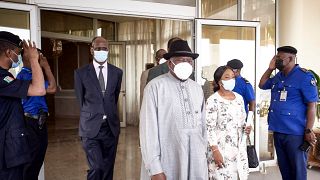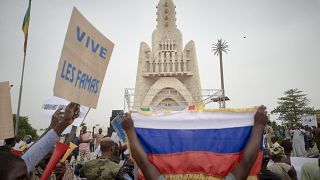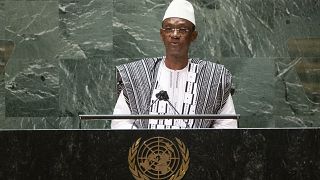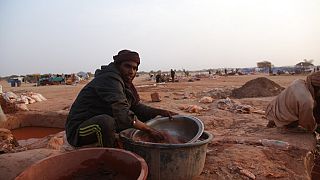Mali
Members of political parties and social activists in Bamako shared their take Tuesday on the televised announcement by the military revealing that colonel Assimi Goita is now in control of Mali.
Adam Dicko, the executive director of AJCAD has the best for her beloved country at heart.
" So obviously this is a coup d'état, which changes the trajectory of our actions. Because at the beginning we were calling for the release of these people but now, it's obviously a coup d'état, so it has become for us a fight to save Malian democracy."
The move also raised concerns that the new political unrest could further destabilize efforts to control Mali's long-running Islamic insurgency.
The United Nations now spends some $1.2 billion annually on a peacekeeping mission in Mali and France's military has spent eight years trying to stabilize its former colony amid the ongoing threat.
Alain Fleuriaye, a cultural producer at Vox pop, shares his feelings on the current situation.
"It is a feeling of uncertainty, of incomprehension, a feeling that we are living an eternal restart. When someone is not satisfied and has the force (power) of the arms, (he) uses it to show his dissatisfaction and to show that he has the strength. We have to get out of this infernal circle, so the rules can make the country work and that forces (a) return to the rules (following the rules). That's the feeling I have."
Goita has pledged to maintain the promise to hold elections in 2022. But still, his firing of the President Bah N'Daw and Prime Minister Moctar Ouaner leaves some fearful of his perceived forceful approach.
Doumbia, (no other name given), member of Adema political party, Vox pop:
"The transitional period was a path that would allow us to go towards elections, even if there were criticisms, we were on the right track. And today, if there is a disruption of this transition, it takes us into the unknown. As a democrat, as a republican I condemn it. We condemn it vigorously."
Many in the international community have condemned the arrests of the two officials - whose current condition remains unknown.
That joint statement made by the African Union, United Nations, the E.U., France and the U.S. among others called for the immediate release of the president and prime minister.
The West African regional bloc known as ECOWAS, which also endorsed the statement, said on Tuesday afternoon that it was sending a delegation to Bamako as the political crisis escalated.
The regional body previously threatened the junta with sanctions if it did not install a civilian president and prime minister, and shorten the transitional period to 18 months.
The EU went a step further, warning Mali's military Tuesday that it was "ready to consider targeted measures against political and military leaders who obstruct the Malian transition."
The new government announced on Monday had left out two men who were prominent junta members: Interior Security Minister Modibo Kone and Defence Minister Sadio Camara.
About an hour after the new Cabinet was named, the military rounded up the president and prime minister.
Goita, who led the junta calling itself the National Committee for the Salvation of the People, has served as Mali's vice president in the transitional government formed last September.











01:37
Record participation at 24th Sofi Great Ethiopian Run
11:05
Africa's hight cost of climate change [Business Africa]
01:42
Niger: Conference in solidarity with the Alliance of Sahel States
01:17
COP29 finance talks lag as the summit reaches its halfway mark
01:38
COP29: What next for Africa's energy transition?
01:00
Civil society takes center stage at Brazil’s G20 social summit